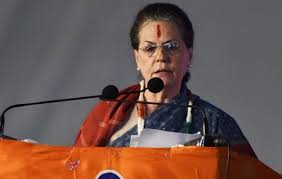In the vibrant tapestry of South Asian politics and religion, few stories are as captivating as the instances where Sonia Gandhi, a prominent figure in Indian politics, faced restrictions in accessing Hindu temples due to her religious identity. This article delves into the nuances of these occurrences, exploring the complex interplay of religion, politics, and cultural practices in the region.
The Ayodhya Ram Temple Inauguration and Congress’s Stance
The recent inauguration of the Ram Temple in Ayodhya, India, has reignited discussions around religious inclusivity in the country. The Congress Party, once led by Sonia Gandhi, made a decisive move by opting out of the inauguration ceremony. This decision was based on their view that the event, organized by the Bharatiya Janata Party (BJP), was politically motivated rather than a purely religious or cultural celebration.
The Pashupatinath Temple Incident: A Diplomatic Stir
The incident at the Pashupatinath Temple in Nepal, where Sonia Gandhi was denied entry due to her Christian faith, is particularly noteworthy. During a visit to Nepal in 1988 with her husband, then-Indian Prime Minister Rajiv Gandhi, the couple intended to visit this revered Hindu shrine. However, the temple’s strict entry norms, which prohibit non-Hindus from entering, resulted in Sonia Gandhi being barred from the premises.
This event led to a significant diplomatic strain between India and Nepal. Rajiv Gandhi’s response, perceived by many as a direct consequence of the temple incident, was to impose an economic blockade on Nepal. This move was controversial and has been subject to various interpretations, with some analysts suggesting that other geopolitical factors, such as Nepal’s arms trade with China, might have played a role in the decision.
The Jagannath Temple in Puri: A Similar Scenario
In another instance, Sonia Gandhi faced similar restrictions at the Jagannath Temple in Puri, India. Despite having acquired Indian citizenship by then, her entry was denied based on her religious background. This event underscores the strict adherence to religious customs and traditions in certain Hindu temples, which often leads to debates about religious tolerance and freedom.
The Intersection of Religion and Politics
These incidents involving Sonia Gandhi highlight the complex relationship between religion and politics in South Asia. While religious sites are revered and hold immense cultural significance, the intertwining of religious practices with national identity and politics often leads to intricate and sometimes contentious scenarios.
Disclaimer : इस न्यूज़ पोर्टल को बेहतर बनाने में सहायता करें और किसी खबर या अंश मे कोई गलती हो या सूचना / तथ्य में कोई कमी हो अथवा कोई कॉपीराइट आपत्ति हो तो वह jansandeshonline@gmail.com पर सूचित करें। साथ ही साथ पूरी जानकारी तथ्य के साथ दें। जिससे आलेख को सही किया जा सके या हटाया जा सके ।














